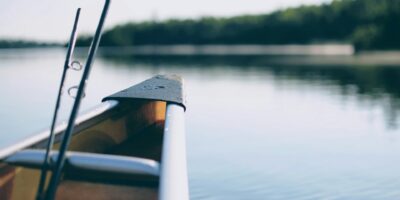Skunked Fishing: Learning from Unsuccessful Outings
Skunked Fishing: What to Do When the Fish Won’t Bite
Getting skunked has gotten complicated with all the excuses, myths, and gear-focused “solutions” flying around online. As someone who’s had more zero-fish days than I’d like to admit — including a brutal streak of three skunked trips in a row last fall — I learned everything there is to know about why it happens and what to do about it. Spoiler: it happens to everyone, and it’s actually useful if you pay attention.

Understanding the Term “Skunked”
Getting skunked means catching absolutely nothing. Zero. Nada. You spent hours on the water, burned gas, used bait, and came home with nothing but a sunburn and bruised confidence. The term’s been around forever in fishing circles, and if someone claims they’ve never been skunked, they’re either lying or they don’t fish very much.
Here’s what I’ve learned to tell myself: being skunked isn’t a reflection of your skill. Even professional tournament anglers — guys who fish for a living — get blanked sometimes. The variables involved in catching fish are so numerous that some days, the odds just aren’t in your favor. What matters is what you do with that information.
Factors Contributing to Being Skunked
Several variables play a role in whether or not fish cooperate:
- Weather: Cold fronts are the classic fish-killer. That bluebird sky and high pressure that feels beautiful to humans makes fish lock-jawed and inactive. I’ve learned to dread post-frontal conditions.
- Water Conditions: Murky water, sudden temperature changes, rising or falling water levels — all of these throw fish off their patterns. A lake that was fishing great yesterday can shut down completely after overnight rain muddies the water.
- Fishing Pressure: Heavily fished spots produce educated fish. Those bass in the neighborhood pond have seen every lure in your tackle box. They’ve been caught and released multiple times and they remember.
- Timing: Fish have feeding windows. Miss those windows, and you’re basically casting at fish that aren’t interested. Dawn and dusk are reliable, but other feeding periods exist and they shift with season, weather, and moon phase.
- Bait and Tackle: Sometimes you’re throwing the wrong thing. The fish want a subtle presentation and you’re burning a spinnerbait. Or they want something big and you’re drifting a tiny jig. Matching what fish actually want to eat matters more than matching what worked last time.
Using Technology to Your Advantage
Probably should have led with this section, honestly. Modern tech can dramatically improve your odds. Fish finders show you where fish are (or aren’t), which eliminates hours of blind casting. GPS lets you mark productive spots and return to them under similar conditions. Weather apps give real-time barometric pressure readings, which correlate directly with fish activity.
Social media and fishing forums are goldmines for current information. Someone posted a catch report from your lake yesterday? That tells you what’s biting, where, and on what. Use that intel. There’s no pride in getting skunked because you refused to look at a fishing report.
Reflecting on Your Approach
When I get skunked, I sit in my truck afterward and think about why. I started keeping a fishing journal three years ago, and it’s been the single biggest improvement to my consistency. I document everything: weather, water temp, clarity, wind, what I threw, where I fished, and what happened.
Over time, patterns emerge. I noticed that my worst days almost always coincided with high pressure systems following storms. I realized I was fishing the same spots too repetitively. I found that my confidence baits weren’t always the right choice. The journal doesn’t lie, and it doesn’t forget. It just shows you the patterns.
Common Mistakes and How to Avoid Them
Here are mistakes I’ve made (sometimes repeatedly) that lead to getting skunked:
- Overlooking Local Knowledge: Talk to people. The guy at the bait shop fishes that lake every week. The old-timer on the dock has decades of experience. Their insights are worth more than any YouTube video. Buy your bait locally and ask questions while you’re at the counter.
- Sticking to One Spot: If you’ve fished a spot for thirty minutes without a bite, move. The fish might be fifty yards away in different structure. I used to park on my favorite spot and wait. Now I cover water until I find active fish, then slow down.
- Ignoring the Environment: Birds diving into the water mean baitfish, and baitfish mean predators. Swirls on the surface, bait jumping, herons standing along the bank — nature is literally showing you where the food chain is active. Pay attention.
Improving Your Techniques
That’s what makes continuous practice endearing to us lifelong anglers — there’s always room to improve. Casting accuracy matters. Retrieval speed matters. Knot strength matters. The angle of your cast relative to structure matters. Every skunked day reveals a gap in your game that you can work on before the next trip.
I spend time in my yard practicing casting at targets. I practice different knots until tying them is muscle memory. I watch underwater footage of fish interacting with lures to understand what triggers strikes versus what spooks fish. This off-the-water preparation pays dividends on the water.
Adapting to Changing Conditions
Flexibility is the difference between getting skunked and salvaging a tough day. Conditions change, sometimes hour by hour. Wind shifts, clouds move in, temperature drops — the fish adjust, and you need to adjust with them. Keep different types of bait and lures accessible (not buried in the bottom of your bag). Switch from topwater to bottom presentations if the surface bite dies. Try deeper water if the shallows aren’t producing.
Learning from Others
I’ve learned more from watching other anglers than from any other source. See how they approach a spot, what they throw, how they work their lure. Fishing clubs and local tournaments are excellent for this — you’ll meet people who’ve been fishing your water for decades, and most are happy to share what they know.
Exploring New Locations
Sometimes your usual spot is just fished out, at least temporarily. Branch out. Different bodies of water have different characteristics, pressure levels, and fish populations. What doesn’t work on your home lake might be exactly what fish want somewhere new. I try to fish at least one unfamiliar location every month. It’s forced me to become a more versatile angler.
Patience and Persistence
Fishing isn’t always about catching fish. Sometimes it’s about being on the water, breathing fresh air, and resetting your brain. Every skunked day adds to your experience database. The lessons compound over time, making you a better angler with each trip, even the empty ones.
When to Call It a Day
Sometimes the fish just aren’t biting, and no amount of technique changes will fix it. Knowing when to pack up and come back another day is a skill in itself. Don’t grind through misery. Leave with your sanity intact, review your journal that night, and plan a better approach for next time. The fish will still be there.



